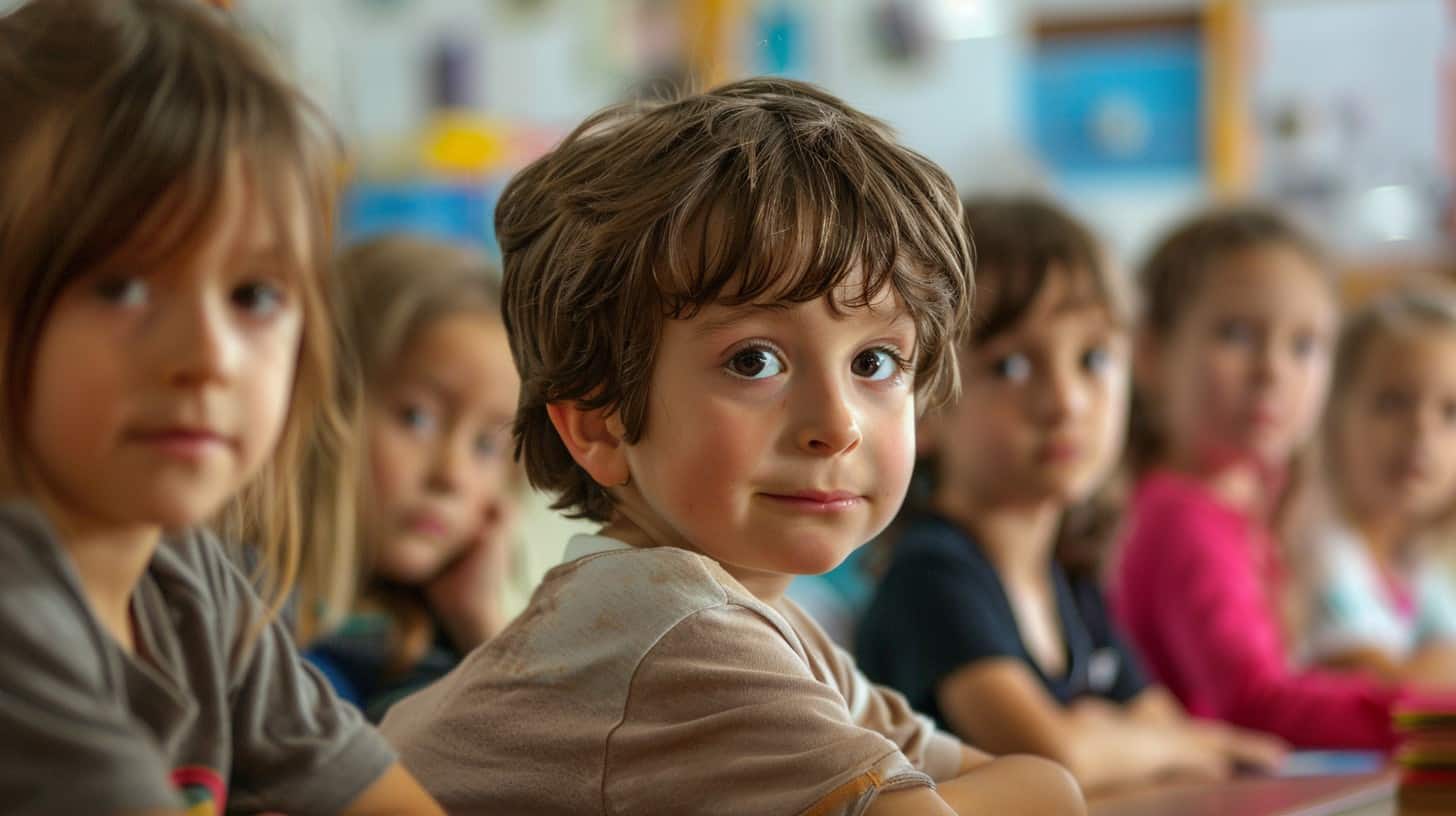Parents often wonder if they’re doing enough to prepare their kids for the big, wide world. The truth is, essential life skills can make a huge difference in a child’s future happiness and success.
Our guide packs a punch with 24 must-have habits for kids of all ages—skills that will stick with them through thick and thin. Ready to jump in?
Key Takeaways
Kids learn important life skills at every age, like sharing and saying “please” when they’re little and managing money as they get older. These skills help them feel ready for the world.
Teaching children how to do chores, handle emergencies, and cook not only makes them more independent but also teaches responsibility. They start to take pride in what they can do by themselves.
Learning to use computers safely is crucial for kids, since technology is a big part of our lives. It prepares them for school projects now and jobs in the future.
Talking with others and making friends are key skills that involve listening carefully and showing kindness. This helps kids work well with others from a young age.
Making decisions is like exercising muscles; the more kids practice choosing between options, the better they get at it. This builds their confidence and problem-solving abilities over time.
Table of Contents
The Importance of Teaching Kids Life Skills
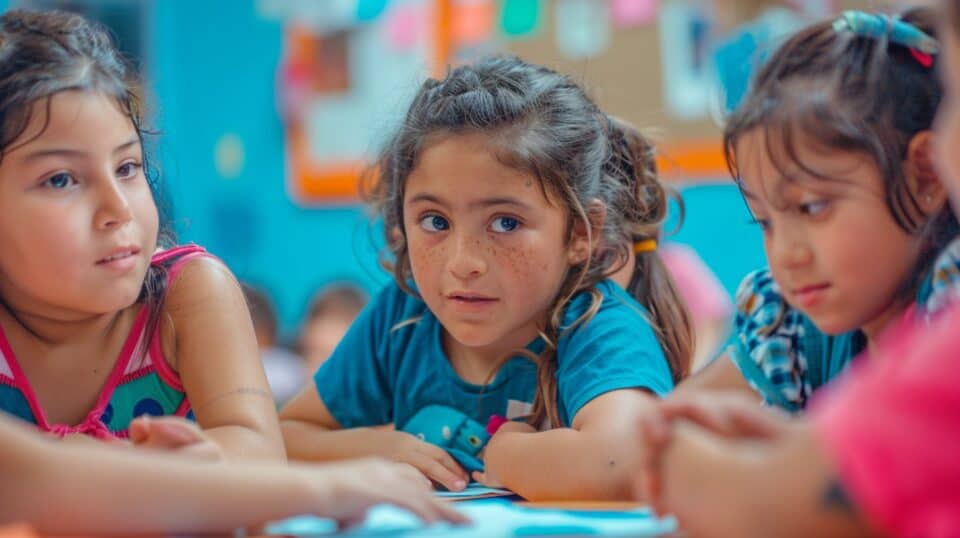
Jumping right in from understanding the basics, it’s like hitting two birds with one stone. Teaching kids life skills not only sets them up for success but also builds a strong foundation for their future.
Think of it this way—skills like swimming, staying tidy, and managing schedules aren’t just tasks; they’re stepping stones to independence. These skills help kids feel more in control and less stressed out.
Now, picture your child grappling with real-world problems. With the right tools—like decision-making prowess, financial smarts, and good old empathy—they won’t just survive; they’ll thrive.
It’s all about giving them the keys to unlock doors themselves before they step out into the big world. Plus, mastering these abilities early means there’s more room to grow, and who doesn’t want that for their kid?
Life Skills for Young Children (2-5 Years Old)

Tiny hands can do big things! When kids are just stepping out of their diapers, it’s the perfect time to teach them about washing up and picking out socks. They start learning how to share toys and say “please” and “thank you,” which is like planting seeds for kindness.
It’s also when they begin understanding that water goes on flowers and food in pet bowls—caring is not just a feeling but an action. Even those glowing screens have a place here; tapping on a tablet can be more than fun—it’s their first step into a vast digital universe.
Basic Hygiene
Teaching our kids to wash their hands, brush their teeth, and take regular showers isn’t just about keeping them clean. It’s a fight against germs that could make them and others sick.
These simple actions stop illnesses from spreading faster than rumors on the playground. And let’s not forget how these habits boost confidence. Imagine your kid stepping out with sparkly teeth – they’re not just healthy; they feel good about themselves too.
Starting young matters.a lot. Kids pick up habits like sponges soak up water, so why not give them something worthwhile? Showing them the ropes of proper cleanliness sets them up for success later in life.
Yeah, it might seem like just another task—making sure they scrub behind their ears or floss properly—but it’s more than that. You’re building warriors armed with soap bars and toothbrushes, ready to tackle whatever comes their way while feeling great doing it!
Getting Dressed and Ready
Picking out clothes and putting them on might sound simple, but it’s a big step for kids. It teaches them decision-making and gives a sense of independence. They learn to choose what to wear based on the weather, occasion, or activity—whether it’s for school, a birthday bash, or playing in the park.
Plus, mastering zippers, buttons, and shoelaces boosts their fine motor abilities.
Starting the day by choosing an outfit sets the stage for learning about personal style and self-expression. It’s not just about matching colors; it’s learning time management too.
Kids figure out how much time they need to get ready without rushing or missing breakfast. This skill is crucial before jumping into lessons on interacting with others nicely.
Basic Interaction with Others
Teaching kids how to interact with others kicks off a journey of learning social cues, manners, and empathy. Imagine your child ordering their meal at a restaurant confidently—big win for self-esteem! They learn the ropes by watching us, so let’s show them how it’s done right.
Please and thank you go a long way in making good first impressions.
Listening is just as crucial as talking. Kids need to understand that conversations are two-way streets. They should give undivided focus when someone else is speaking—no interrupting or zoning out allowed.
Recognizing emotions in themselves and others helps them connect on deeper levels. It’s all about teamwork; they share, help out, and make friends along the way by simply being kind and considerate humans.
Caring for Pets and Plants
Giving kids the chance to care for living things teaches them about love and life. They learn by doing—watering flowers, feeding a dog, or even cleaning a fish tank. These simple tasks help them understand responsibility and empathy.
Showing compassion towards a pet or a plant isn’t just nice; it’s crucial for their emotional growth.
Kids feel proud when they see a plant thrive or a pet wag its tail because of their care. This sense of accomplishment boosts their self-esteem and motivates them to take on more responsibilities.
It’s like hitting two birds with one stone—they nurture empathy while mastering important life chores. Plus, figuring out how much water a thirsty cactus needs or deciding when to walk the family canine keeps their minds sharp and hearts full.
Introduction to Digital Devices
Just like caring for pets and plants teaches responsibility, starting kids early with gadgets lays a foundation for digital literacy. Let’s face it—tablets and smartphones are everywhere, playing huge roles in our lives.
But just handing over a gadget without guidance is like throwing someone into the deep end of the pool without swimming lessons. So, what’s the game plan? Start simple. Teach them to use educational apps before moving on to more complex tasks such as operating a computer or browsing the internet safely.
Explaining online safety is crucial—think of it as teaching them to look both ways before crossing the street, but in this case, it’s about recognizing which websites are safe and how personal info must be private.
just like their diary key! With some patience and practice, they’ll soon navigate these devices like pros while understanding their power—and limits. This isn’t just about playtime; it’s preparing them for school projects, research, and eventually, the workforce—all wrapped up in fun-sized lessons appropriate for their age.
Essential Skills for Kids (6-10 Years Old)
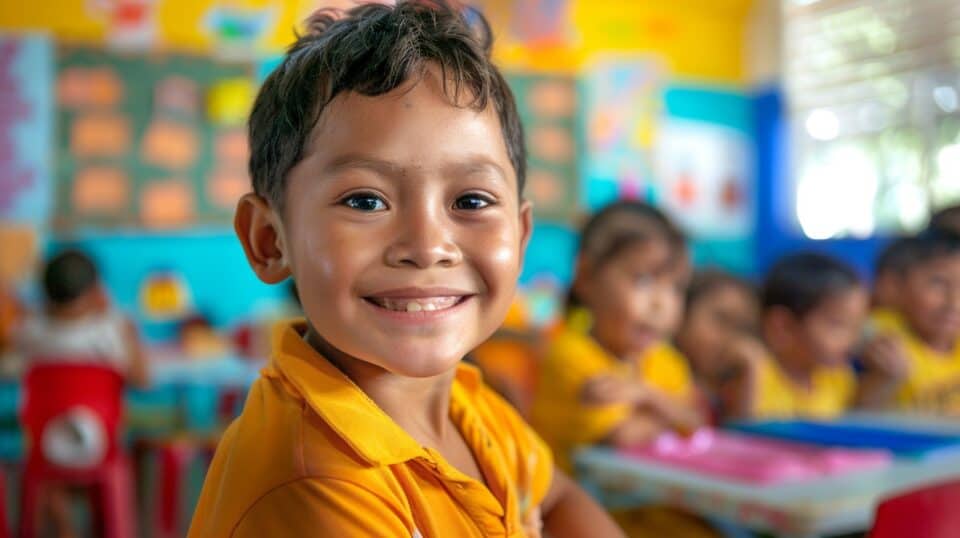
Kids between 6 and 10 are like little sponges, soaking up everything around them. This is the golden time to teach them skills that will set them up for success in school and beyond.
Basic First Aid
Teaching kids how to use a first aid kit and handle emergencies is not just about band-aids and ice packs. It’s about giving them the power to help when things go south, whether it’s a scraped knee at the park or a sprained ankle during soccer practice.
They learn that with a bit of knowledge and calm, they can make a big difference in someone else’s day—or even their own.
Show them the ropes—how to clean a cut, apply pressure to stop bleeding, or wrap an injury. These are skills that can turn your child from feeling helpless into being a mini health hero.
And let’s be real, understanding what’s in that magical box gives them confidence. Suddenly, those emergency drills feel like less of an “if” and more of an “I’ve got this.” They grow up knowing that bumps and bruises aren’t the end of the world because they’ve already practiced how to fix them—a little piece of independence that goes a long way.
Cleaning and Chores
After learning basic first aid, kids can tackle chores and tidying up around the house. They start feeling more responsible. Sorting toys not only keeps their room neat but also sharpens decision-making skills.
It’s like fitting puzzle pieces together—each toy has its place.
Show them how to use a broom, a sponge, and even a vacuum cleaner safely. Let them help with laundry by matching socks. Explain why we separate whites from colors before washing. These tasks might seem small, but they teach big lessons in self-discipline and time management.
Plus, it’s fun to see them take pride in a clean space!
Conversation Skills
Teaching kids how to chat and listen lays the groundwork for successful friendships. It’s like building a bridge—one word at a time—towards understanding others. Kids learn a lot by speaking their minds and listening in return.
They grab onto empathy, find out how to be great pals, and navigate tricky emotions—all through conversations! It’s about more than just words; it’s learning the dance of back-and-forth banter that lights up their social world.
Encouraging your child to express what they think helps them grow into confident talkers and keen listeners. Imagine giving your kid a toolbox—a really cool one filled with tools for chit-chat, hearty debates, and even those silent nods that say a thousand words.
These skills are gems when working in groups or simply sharing a moment of laughter over lunch. By jumping into chats, your little one practices problem-solving with peers and gets savvy at picking up non-verbal hints—like when someone’s eyes light up at an interesting story or hands fly around while explaining something exciting.
Let’s not forget—it all starts with “hello” but leads to connections that can last forever.
Decision Making
Life skills aren’t just about tying shoes or brushing teeth. Indeed, making choices is a big part of growing up, and kids need to learn this early. They face decisions all the time—from picking a snack to choosing whom to play with.
But here’s the kicker: if we guide them through small decisions now, they’ll have the guts and smarts for bigger ones later. Think of it as building muscle—the decision-making kind.
Let’s put on our coaching hats and show them how it’s done. Offer choices that make sense for their age. Would they rather read a book or draw? This way, they’re practicing without even knowing it! Plus, every choice they make boosts their confidence bit by bit.
It’s like laying bricks—one at a time—to construct a strong foundation in problem-solving abilities and critical thinking. And remember, mistakes are just chances to learn, not setbacks.
So next time your little thinker decides on chocolate ice cream over vanilla—cheer them on! They’re flexing those decision-making muscles one scoop at a time.
Money Skills
Making smart choices with money ties directly to learning how to decide wisely. Teaching kids about finances is like giving them a toolbox for their future. They learn the value of a dollar, yes, but also how saving up can lead to big rewards down the line.
It’s about more than just piggy banks and allowance; it’s about instilling confidence and resilience in young minds.
Start simple: differentiate between needs and wants, make budgeting a game, introduce them to the concept of earning through chores or small jobs. Let them handle cash, understand what things cost, and perhaps open a junior savings account in their name.
This hands-on experience with money management will set them on a path towards financial literacy—a crucial life skill that pays dividends far beyond childhood.
Time Management
Time management for kids is like building a puzzle. It starts simple, then gets more complex. Teaching them early means they won’t struggle to juggle school, hobbies, and chores later on.
They’ll learn not just to race against the clock, but to work with it. Picture setting goals as planting seeds in a garden. As kids nurture these seeds with time and care, they see them grow—teaching patience, planning, and the joy of seeing results.
Let’s make it real: have your child use a planner or a schedule app on their device. Show them how breaking tasks into smaller chunks can turn mountains into molehills… like how eating cookies one bite at a time makes it easier (and yes, maybe more fun).
Teach them that delaying gratification—waiting until after homework to play video games—makes leisure time sweeter. And here’s the kicker: good time management reduces anxiety because there’s less rushing and fewer “I forgot” moments.
So really, you’re not just teaching them to watch the clock; you’re showing them how to enjoy each moment more fully.
Basic Computer Skills and Internet Safety
Kids are like sponges, soaking up skills that set them up for a bright future. And hey, we can’t ignore the digital elephant in the room — technology is everywhere! Teaching kids aged 6-10 basic computer abilities and how to stay safe online turns them into mini tech-whizzes.
They learn to type faster than they text, use software that makes their school projects shine, and understand the internet isn’t just for watching cat videos. Courses from places like Juni Learning dive deep into coding while keeping things fun and engaging.
Safety first, though, right? The internet’s a vast playground with its fair share of “Keep Out” signs. Teaching our young ones internet safety shields them from the not-so-nice parts of the online world.
This helps keep their personal information locked down tighter than Fort Knox and teaches them to navigate this digital landscape with confidence. It’s all about striking that balance — embracing technology without getting tangled in its web.
Next up on our skill-building journey: let’s tackle what pre-teens need to know.
Crucial Skills for Pre-teens (11–14 Years Old)
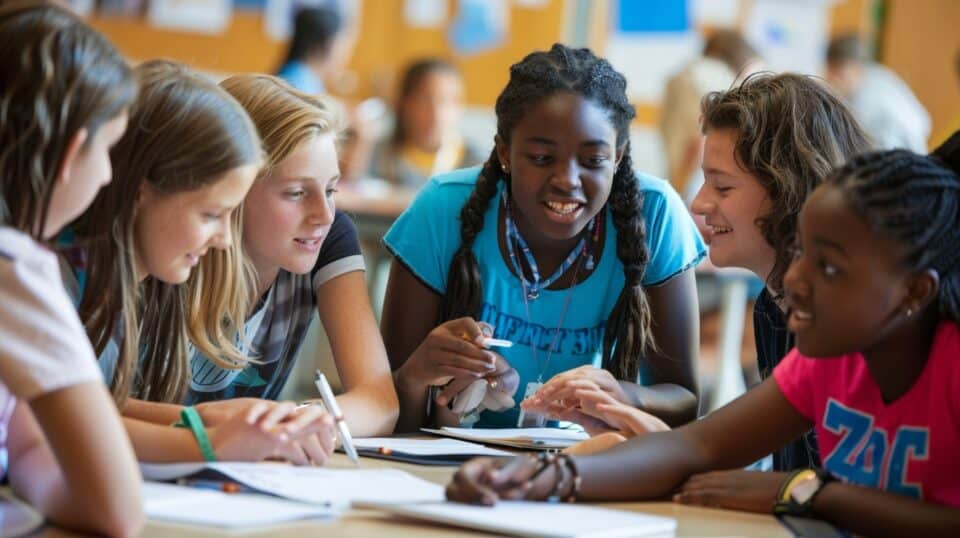
Pre-teens are like explorers — always ready for the next big adventure. They need a map of skills to navigate this tricky age, from handling their emotions in tough times to whipping up a simple meal when hunger strikes.
Coping with Failure
Learning to handle disappointment is a big deal for pre-teens. It’s like getting the hang of riding a bike after a few tumbles. Start by showing them that messing up isn’t the end of the world, but part of learning and growing.
Highlight stories from successful people who failed at first, making it clear that setbacks are just stepping stones to success.
Encourage them to set goals and understand that reaching for the stars sometimes means slipping along the way. Teach them problem-solving skills—it’s like having their own toolbox for life’s hiccups.
When they stumble, discuss what went wrong and how they can adjust their strategies next time. This approach turns failures into powerful lessons, stoking their motivation to try again with more wisdom under their belts.
Basic Cooking Skills
Teaching your kids to cook is like giving them a key to a healthier future. It’s not just about making tasty dishes; it’s about independence, responsibility, and learning the value of nutrition.
Your kitchen turns into a classroom where lessons on hygiene, safety, and following recipes transform your pre-teen into a more self-reliant individual. They learn that cooking isn’t just an adult’s game – measuring ingredients boosts their math skills, while timing dishes sharpens their ability to manage minutes and hours effectively.
Beyond the basics of boiling water or making toast, cooking with your kids can be fun! Picture cracking eggs without creating a mess or flipping pancakes like a pro – these moments are golden.
Plus, they won’t just be contributing to meal prep; they’ll carry these skills into adulthood, making “what’s for dinner?” less of an everyday puzzle. Next up? Let’s dive into why mastering the basics of programming is another essential skill set for this savvy generation.
Introduction to Programming
Getting kids into programming can unlock doors to future success in tech. Sites like Codemonkey make learning fun and engaging. Kids can start small, think big, and create amazing things with just a few clicks and lines of code.
Programming isn’t just about typing on keyboards; it’s a way to teach problem-solving and critical thinking. Imagine your child turning their video game dreams into reality or coding their own website.
Juni Learning personalizes the experience with hands-on online courses that cater to young minds eager to explore the digital landscape. Fenley, a teen who dived into Juni’s programming courses, emerged not just as a coder but as an entrepreneur and published author.
This shows how mastering coding skills early on helps in more than one way—boosting creativity, confidence, and the ability to tackle complex problems head-on.
Now let’s see how household chores fit into this puzzle.
Household Chores
After pre-teens crack the code on programming, it’s time to tackle household chores. Yes, they might groan at first. But learning to manage these tasks is like unlocking a new level in a video game – except this one prepares them for life beyond their parents’ house.
They’ll learn to sweep floors, clean dishes, and even do laundry. Think of it as training for independence, where every folded shirt and dusted shelf adds up.
They also get savvy with tools and appliances that are part of daily living – think vacuum cleaners instead of dragons and washing machines over alchemy sets. It’s more than just keeping things tidy; it’s about responsibility, anticipation of others’ needs (like emptying the dishwasher without being asked), and taking pride in their space.
Plus, imagine the look on their faces when they conquer the iron or cooktop – pure gold!
Money Management
Teaching kids how to handle cash, save up, and spend wisely is like giving them a treasure map for life. It’s not just about getting their allowance and blowing it all on video games or candy.
It’s more about laying down the groundwork for smart financial habits that will pay off big time in the future. Let’s break it down: starting with a piggy bank might seem simple, but it’s their first step into understanding savings and budgeting.
Knowing where each penny goes teaches them the value of money, something they sure won’t learn from spending hours in front of a screen playing games.
Enter goal-setting — it’s as crucial as teaching them to ride a bike without training wheels. Whether saving for that cool bicycle or those must-have sneakers, learning to wait teaches patience and planning skills.
Plus, dabbling in basic banking adds another layer to this skill cake! Introducing teenagers to the world of checking accounts and debit cards opens up conversations about earning interest and understanding fees – real-world stuff right there! Investing concepts can wait a bit; building solid ground comes first.
They grow up so fast… And before you know it, they’re making decisions that shape their future financial success all by themselves!
Empathy
Empathy isn’t just about being nice. It’s like unlocking a superpower in your kids that helps them understand and connect with others. You begin by showing them how to see things from someone else’s point of view, like stepping into another person’s shoes without actually taking their sneakers.
This skill is vital as it teaches the young ones to work well in a group, handle disagreements peacefully, and learn from blunders instead of getting stuck.
Kids learn empathy not only through what we say but also through our actions. Encourage them to notice friends’ feelings and react kindly, emphasizing the importance of choosing buddies who uplift each other.
When they mess up or bump heads with peers—which will happen—guide them on how to patch things up again… like fixing a toy, but with heartstrings involved! Empathy shapes children into friends who listen rather than wait for their turn to talk—a trait leading to friendships built on solid ground.
Key Skills for Teens (15–18 Years Old)
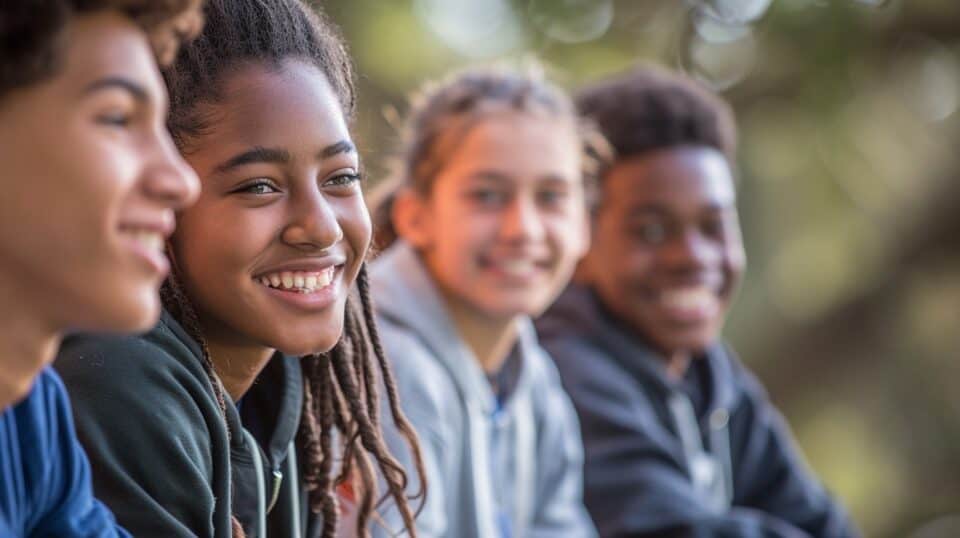
Teens are on the brink of adulthood, ready to spread their wings. It’s time they grasp skills that’ll help them soar – from cracking tough problems to managing bucks wisely.
Critical Thinking & Problem-Solving Skills
Teaching your teen to think critically and solve problems is like giving them a Swiss Army knife for life. They’ll need these skills every day, from figuring out the best route to school when there’s traffic, to managing their time for homework, sports, and hanging out with friends.
It’s all about looking at situations from different angles and finding creative solutions.
Critical thinking isn’t just for science class; it’s a tool they’ll use whether they’re deciding which job offer to accept or how to budget their first paycheck. Problem-solving skills help them tackle obstacles head-on instead of avoiding them.
These abilities prepare teens for real-world challenges, guiding them toward making informed decisions and setting achievable goals. Plus, mastering these skills now adds up big time – it’s like investing in their future selves.
Driving Safely and Taking Care of Vehicle
Learning how to drive safely is a rite of passage for many teens. It’s like unlocking a new level in a video game but with real-life cars and roads instead of controllers. Knowing the rules of the road isn’t just about passing the test—it’s about keeping yourself and others safe every time you’re behind the wheel.
Plus, understanding basic car maintenance goes hand-in-hand with driving. It’s kind of like having a pet; you need to take care of it regularly, so it doesn’t let you down when you need it most.
Imagine knowing exactly what to do if your tire decides to go flat on a lonely street or how often to check your oil—sounds empowering, right? That’s because being able to check your vehicle’s fluids, change its tires, and keep up with regular service appointments makes handling unexpected situations less stressful.
And while not all teens will have their own car before they move out for college or work, these skills are priceless, no matter whose car they’re using—even if it means helping out friends or family in pickle situations!
Finding a Job
Teens need to get ready for the real world, and finding a job is a big part of that. They should start by exploring their interests and skills. This can be as simple as thinking about what subjects they love in school or what hobbies keep them up at night.
Next step, crafting a resume. It’s like making a sandwich – layer your educational background, any work experience (yes, mowing the lawn for neighbors counts!), and skills neatly.
Networking is not just for adults on stuffy business lunches; it’s for teens too! Encourage them to talk to family friends, teachers, or anyone they admire career-wise. These chats could lead to job shadows—where they follow someone around at their job—to see if it’s something they’d enjoy doing full-time.
And remember, social media isn’t just for fun; platforms like LinkedIn can be golden gates to the working world!
Now onto handling money wisely.
Financial Planning
Landing that first job is just the beginning. Next up, learning how to handle the dough! Financial planning isn’t just about stashing cash under the mattress. It’s teaching teens the nitty-gritty of budgeting, saving for a rainy day, and yes, even investing in their futures.
Think of it as their toolbox for money matters—one that includes tools like understanding credit scores, avoiding debt like it’s a smelly sock, and making every penny count.
It’s all about getting teens ready to make smart money moves. Show them how a budget is more than a list—it’s their financial game plan. Encourage them to set goals, big (hello dream car) or small (those concert tickets aren’t going to buy themselves).
Explain interest rates not as boring math problems, but as keys that can either unlock doors or lock them tight with debt. This way, they’ll be ready to take on whatever financial challenges come their way—with confidence and savvy know-how.
Conflict Resolution
After mastering financial planning, teens step into the complex world of conflict resolution. It’s like switching gears from managing money to navigating personal interactions. Teens learn to solve disagreements without losing their cool.
or their friends. This skill is crucial in every part of life—school, work, and even at home.
Teens practice active listening, understanding both sides of a story before jumping in with their own thoughts. They learn the power of empathy, putting themselves in someone else’s shoes to see the bigger picture.
With these tools in hand, they tackle problems head-on but with a gentle touch. Learning to communicate effectively cuts through tension like a hot knife through butter—smoothly and efficiently.
Mental Health Management
Managing mental health is a bit like juggling. Teens need to keep their emotions, stress, and thoughts in balance. It’s crucial for them to learn how to deal with anger, peer pressure, and sadness in healthy ways.
Teaching them coping mechanisms helps. This might include taking deep breaths when angry or talking things out after a rough day at school. It’s about knowing it’s okay not to be okay sometimes.
Empathy plays a big part too—understanding others’ feelings can make teens more emotionally intelligent. Encouraging them to walk in someone else’s shoes boosts this skill. Plus, admitting mistakes and learning from them builds character… and resilience! Facing challenges head-on teaches valuable lessons – like how making new friends can ease shyness and boost self-worth without waiting for an inbox invite or a browser notification to feel valued.
The Role of Parents and Educators in Teaching Life Skills

Parents and teachers have a big job. They show kids how to do things that books can’t always teach. Like tying shoes, saying please and thank you, or even managing money. These aren’t just tasks; they’re life lessons.
Think about it—the skills for balancing a budget are more useful in the long run than memorizing the capitals of all 50 states. It’s not just about grades on a paper but preparing them for real-world challenges.
Teachers bring knowledge to the classroom, sure. But parents add something special too. They share wisdom that only comes from experience—like knowing when to push and when to hug after a tough day.
Together, they build strong thinkers who can tackle problems, set goals without procrastinating, and lead with empathy and understanding in their communities. This team effort makes sure kids not only dream big but also have the tools to chase those dreams successfully.
FAQs About Life Skills for Kids
Why should kids learn to manage money early?
Starting financial education early turns kids into smart decision-makers about money. They’ll learn not just to save for that cool video game, but also how to budget their school lunch money or understand why they can’t always get new toys on demand.
How do video games help children develop essential skills?
Believe it or not, video games are good for more than just fun. They teach problem-solving and improve attention to detail. Plus, winning a tough level after many tries teaches persistence and delayed gratification – key ingredients in the recipe for success.
Is learning an instrument really worth it?
Absolutely! When kids learn an instrument, they’re not just making music; they’re boosting brain power, improving memory, and sharpening concentration skills. It’s like hitting the gym but for your brain!
Can playing sports shape a child’s future?
You bet! Sports boost physical health while teaching life lessons off the field too: teamwork, leadership, and self-discipline. Whether it’s scoring a goal or mastering gross motor skills by climbing the jungle gym, every move counts towards building strong bodies and minds.
Why is empathy important in child development?
Walking in someone else’s shoes isn’t just good manners; it’s crucial for emotional intelligence. Being empathetic helps kids understand others’ feelings and reactions—vital tools for making friends, dealing with bullies gracefully, and growing into kind adults.
How does setting goals benefit children?
Goal setting turns dreams into plans, with steps as simple as finishing homework before screen time or saving allowance money for something special—teaching them patience and focus along the way.
